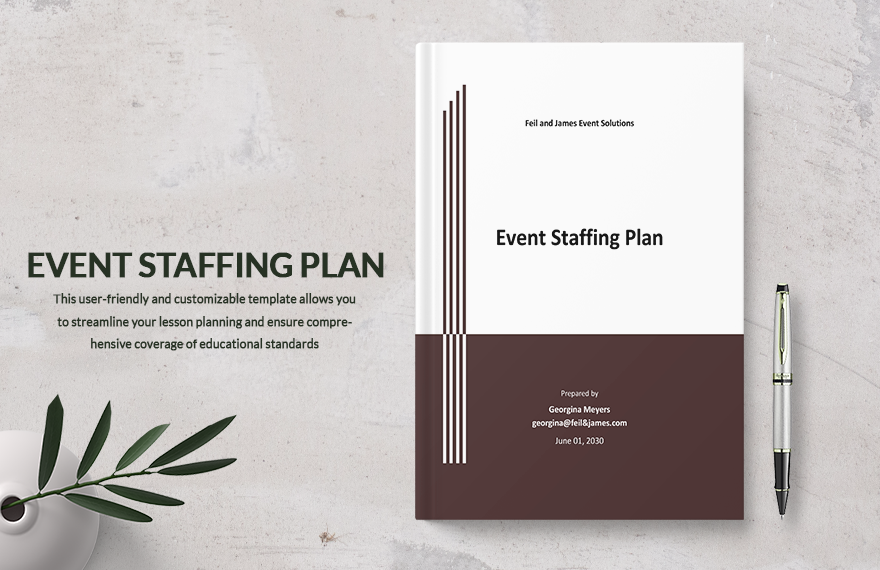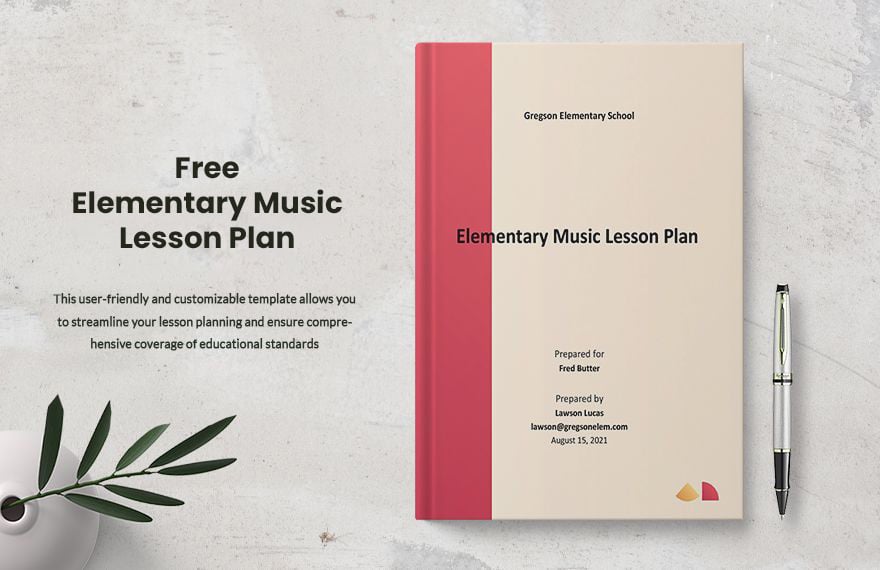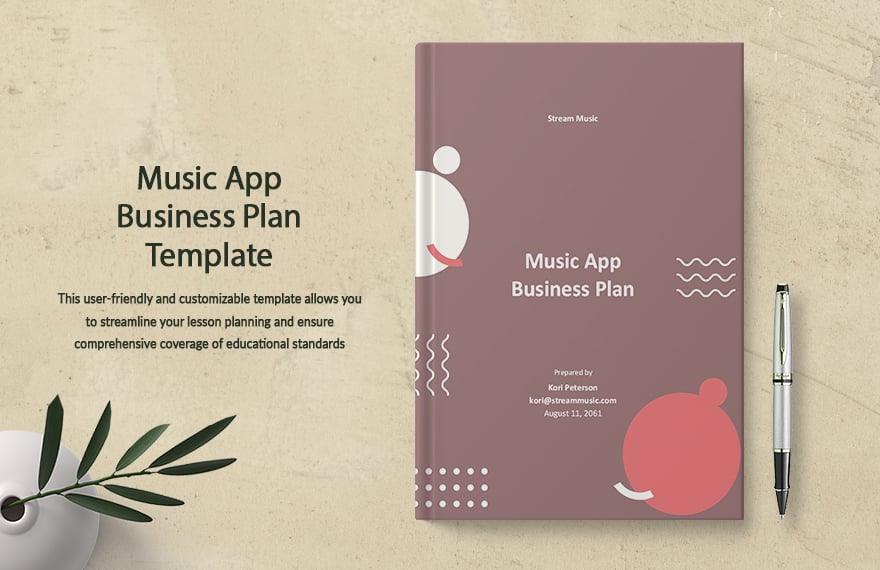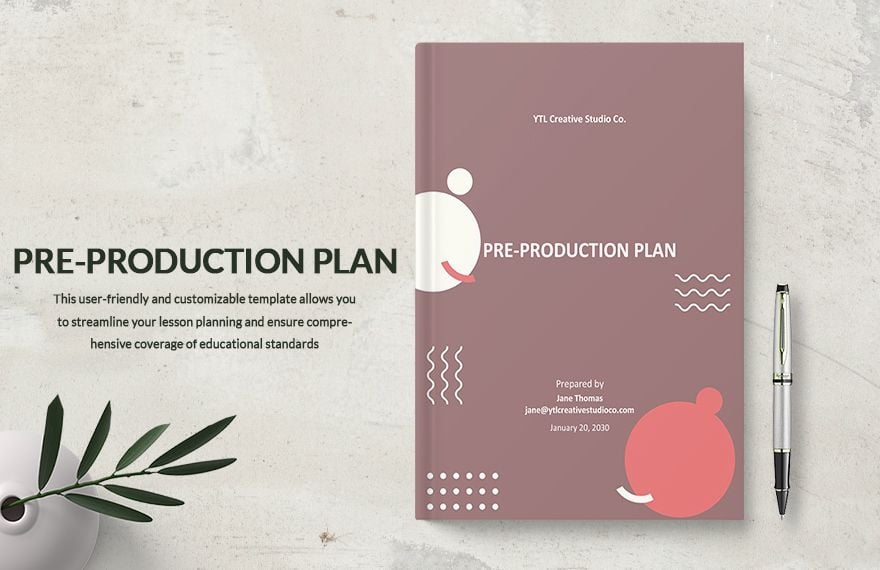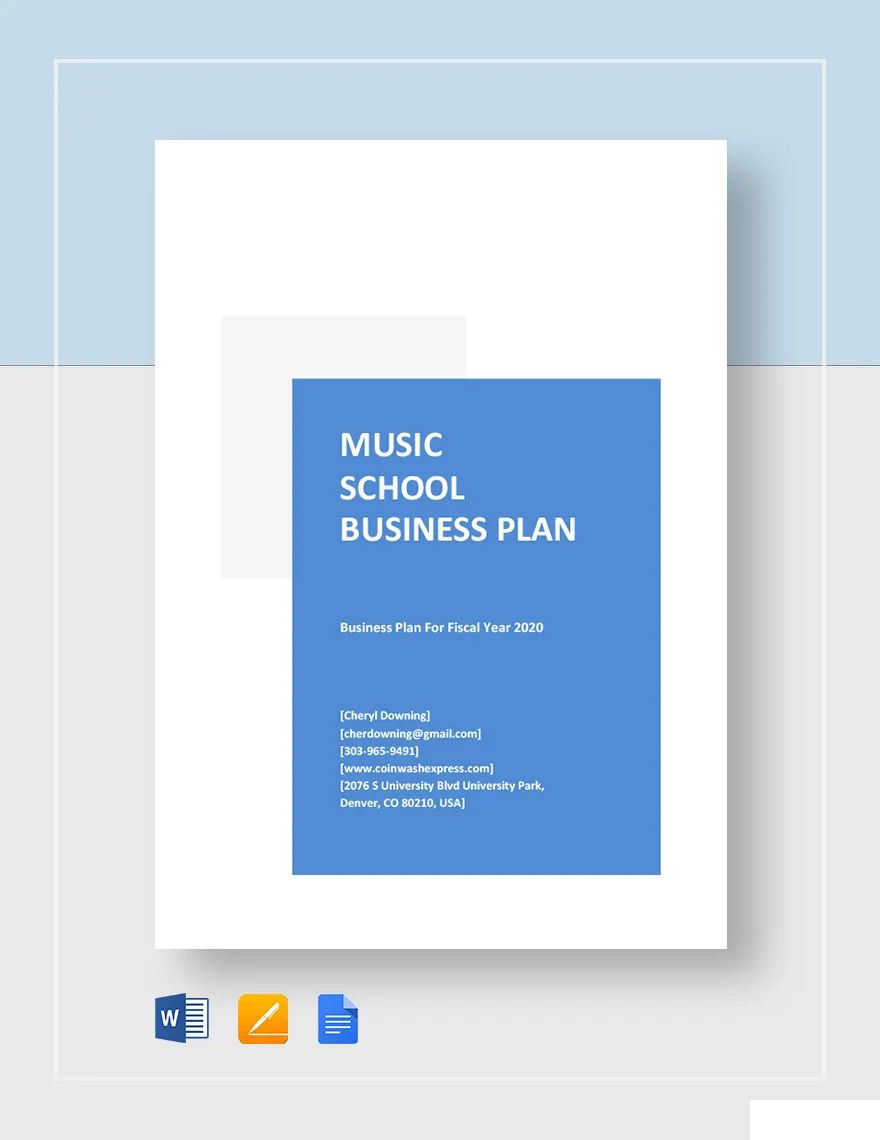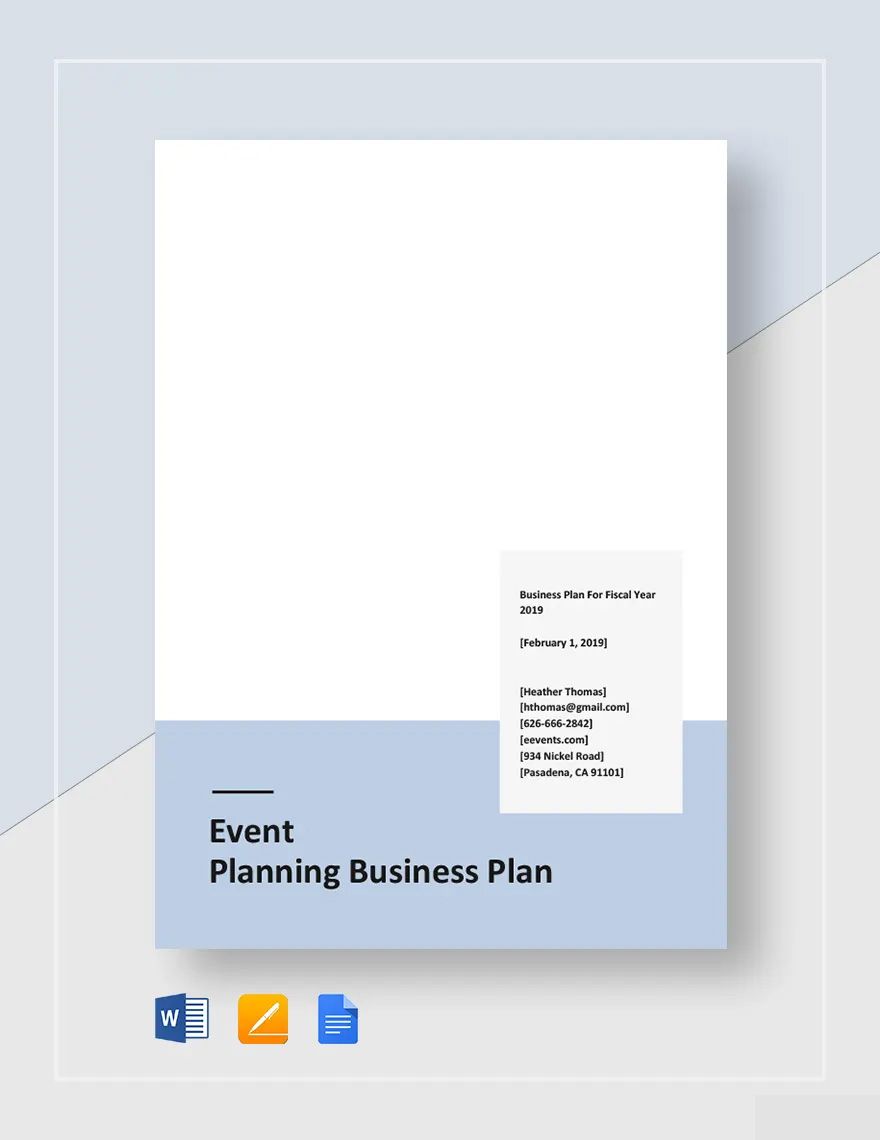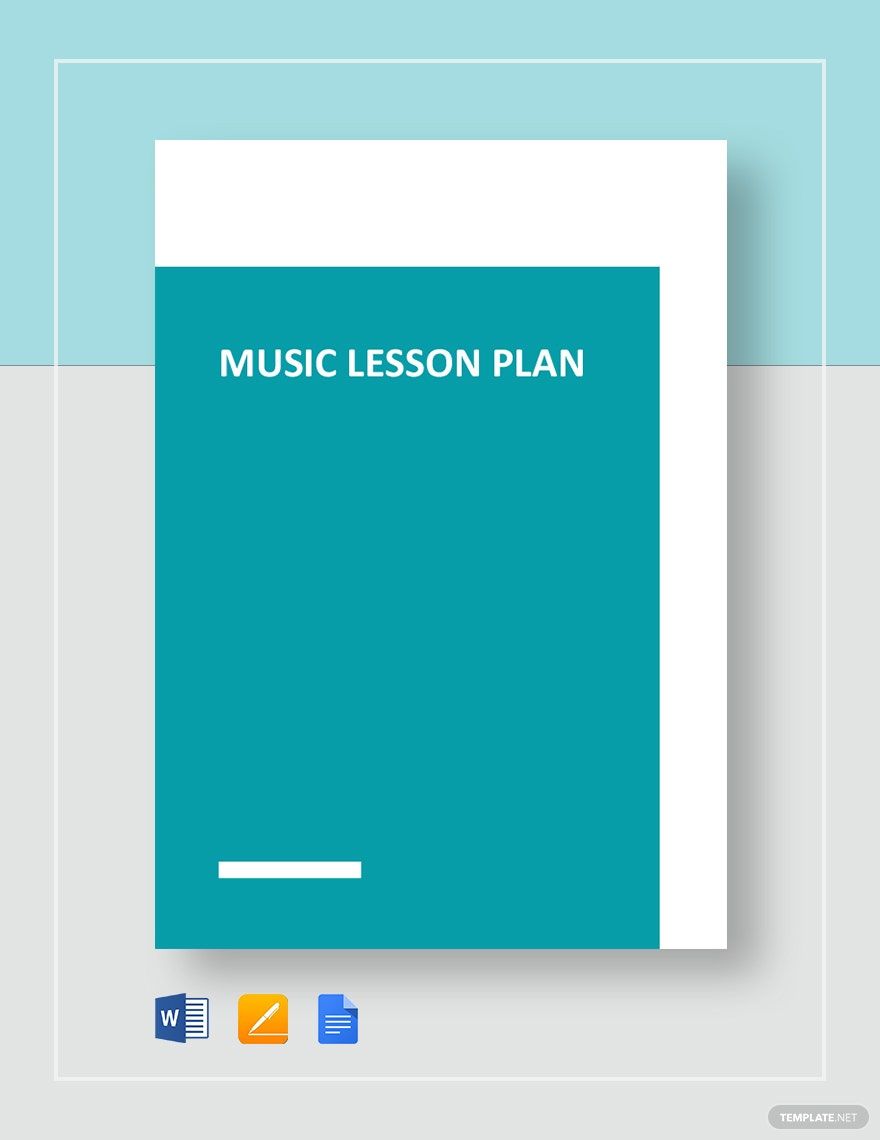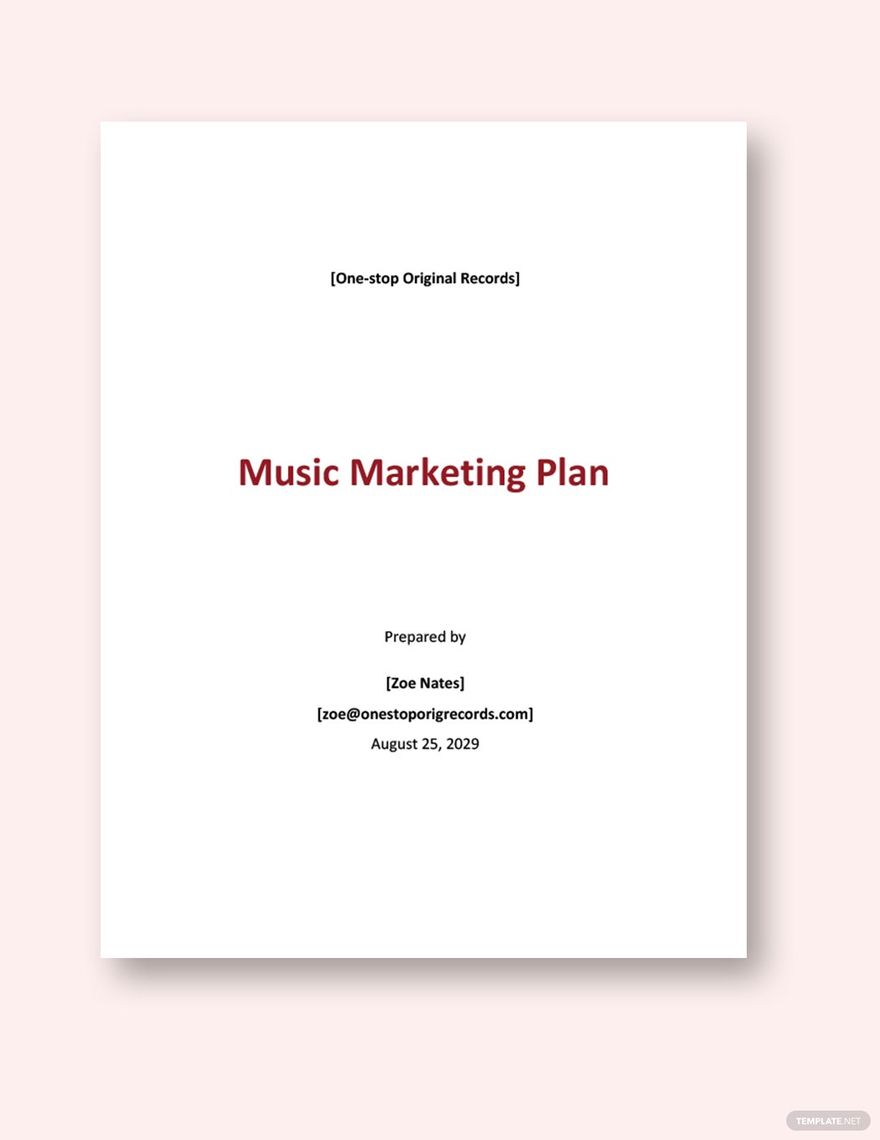Did you know that music enhances the process of learning? In fact, a study reveals that 95% of Americans believed that music is a key component in a student's well-rounded education at any levels such as in primary school. Additionally, the total value in the recording industry was $ 15 billion just in 2015. It simply implies that the recording industry is rising. If you are a person who loves music and considers it as a living, you need to be careful in planning. To help you with that, Template.net serves the best Music Plan Templates like music lesson plan and music marketing plan templates. These files are 100% customizable, easily editable, and printable which will help you save time. Make use of our suggestive contents. Simply modify certain items that will fit your needs. Freely download them in any file format you want such as Google Docs, MS Word, and Apple Pages.
What Is a Music Plan?
A music plan is usually a detailed graph or list of steps of your work music beforehand. It contains information that is used to accomplish the goal of doing music. It is frequently understood as a temporary set of action plans by which an objective is expected to be achieved.
How to Create a Music Plan
A music plan can be used as a music lesson plan for education or a music marketing plan for business. Creating a music plan is basically the first step for the propagation of your music. In this guide, we will present useful tips and effective instructions in the process of achieving the dream you want to be set for your music plan.
1. Create an Objective
In any plan such as a music plan, there is always an objective. It will help you determine what are the specific actions you need to take in order to accomplish such a goal. For instance, if you are going to create a music lesson plan. Ask yourself, as a teacher, what would you want the students to learn at the end of the lesson? Or, in marketing your music, what would you want your audience to gain in listening to your songs? Questions like these will give you an idea of how to carefully outline your objectives.
Just a tip, have SMART (Specific, Measurable, Attainable, Realistic, and Time-based) objectives.
2. Incorporate Details
Along with your objectives, you have to clearly incorporate important matters in your music plan. This includes key information such as the topic you want to discuss, the lesson period, materials needed, introduction, activities, and your assessment. Be clear in elaborating each detail to provide a smooth, comprehensive, and strategic plan.
3. Make a Brief Introduction
Important details include an introduction. In writing your introduction. just make it brief. Do not squeeze too much information. Find a way to make it concise. If you are going to make a music marketing plan, this section includes the biography of the artist or composition of the band making the music. It also describes what the artist or band expects to get from the producers and promoters of the recording company and why they should give it to them.
4. Set your Activities into a Timetable
In order for you to be challenged in accomplishing your goals, you must set a specific timetable. It would help you become realistic and successful in your music plan. Generally, make a checklist of tasks that you must complete in order to achieve your objective. There, put your achievable tasks in a daily or yearly plan. These are all the activities you must do to gain opportunities and to promote your music services and lessons.
5. Make a Budget
This is more applicable to a music marketing plan. They say that establishing a music career is like setting a fresh and new business. And that's true. Planning your music career has to consider enough budget. Money will help you reach a wider audience and location.
A blog says, if there's one thing that matters about your career as an independent artist is your power to keep up with a budget. Budgeting is the basis for determining where or how expenditures are supposed to be steered towards attaining a specific objective.
6. Write an Evaluation
Finally, write down your assessment or evaluation. This section contains the feedback from your audience. There, you will be able to realize what modifications you need to integrate into your next plan.
